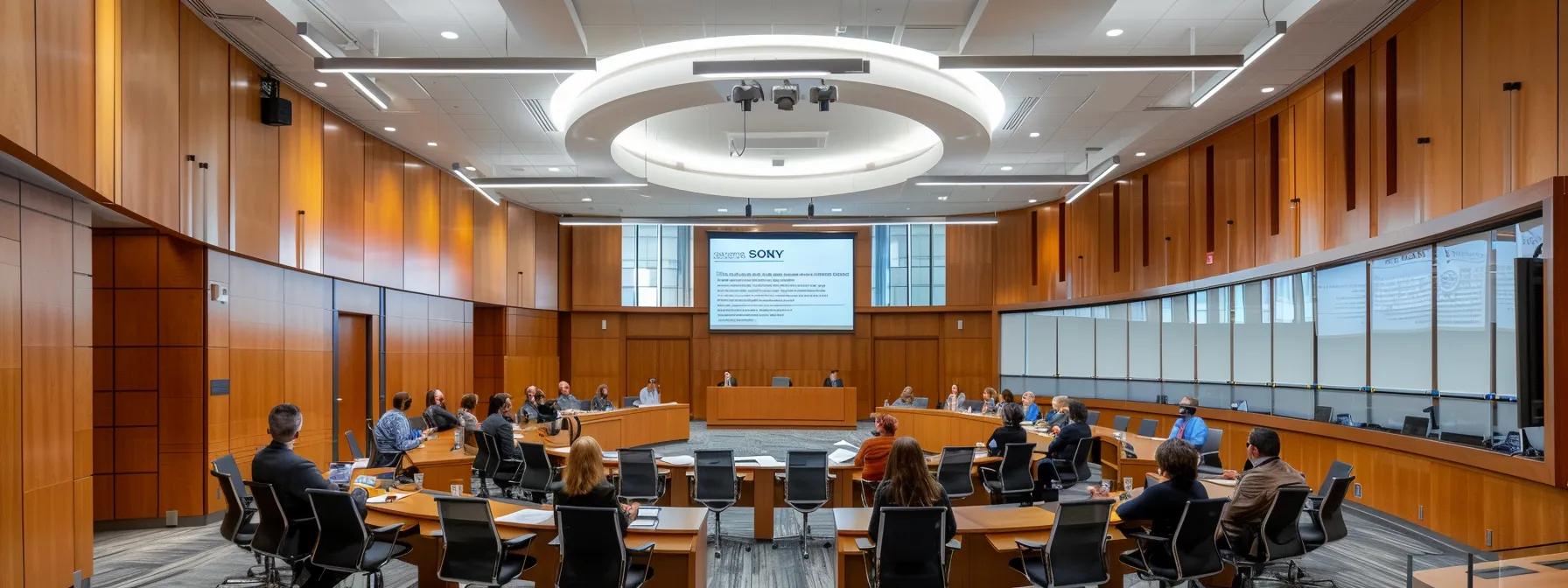How Long Will a Divorce Take? A Divorce Lawyer Explains Timelines & Factors
Divorce is often viewed as a prolonged and complicated process, but understanding the key factors that influence the duration of a divorce can provide clarity and better preparation for those involved. While some divorces resolve quickly through amicable settlements, others may stretch over many months depending on asset division, custody agreements, and court schedules. This article explains the typical timeframes for both uncontested and contested divorces, outlines the steps involved in the divorce process, and discusses how a divorce lawyer, with expertise from coastalvirginialaw, can help shorten the timeline through effective case management.

Key Takeaways
- Divorces vary in duration based on whether they are uncontested or contested.
- Factors influencing length include asset division, child custody issues, and even the level of spousal cooperation.
- Following procedural steps and working closely with an experienced divorce lawyer can significantly streamline the process.
- Understanding state residency and mandatory waiting periods is crucial for estimating the overall timeline.
Understanding Average Divorce Durations

The duration of a divorce depends largely on whether the case is uncontested or contested. Generally, uncontested divorces, where both parties agree on key issues, can be finalized within a few months. Contested divorces, on the other hand, especially when counterclaims regarding asset division or child custody arise, can extend well beyond one year.
Typical Timeframe for an Uncontested Divorce
Uncontested divorces are often resolved faster because both spouses agree on matters such as asset division, child custody, and support. The processing of such cases usually involves filing the initial petition and promptly reaching a settlement without extensive court hearings. While waiting periods may vary by jurisdiction, many uncontested divorces finish within three to six months.
Projected Timeline for a Contested Divorce
When disagreements arise, the court must intervene to resolve disputes. Contested divorces are more complex and involve extra steps like mediation, discovery, and multiple hearings. In many regions, it is not unusual for a contested divorce to extend from one to two years, especially if disagreements persist or new evidence comes to light.
How State Residency Requirements Affect How Long a Divorce Takes
State residency is a critical eligibility requirement. Generally, one or both parties must meet a minimum residency period before filing for divorce. These requirements can delay the start of proceedings, and varying local rules may extend the entire duration of a divorce process. Understanding these specifics is important to set realistic expectations.
Mandatory Waiting Periods and Their Impact on Divorce Length
Many states impose a mandatory waiting period from the time the divorce petition is filed until a divorce can be finalized. This period, ranging from 30 days to six months, is designed to provide a cooling-off period and ensure that both parties have ample time to consider their decisions. These waiting periods can be a primary factor in the overall timeline, sometimes delaying the divorce even when all issues are settled.
Primary Elements That Determine How Long Your Divorce Will Take

Multiple personal and legal factors influence the length of a divorce. Central aspects include the complexity of asset division, child custody and support negotiations, and the level of cooperation between spouses. A comprehensive evaluation by a divorce lawyer helps estimate the timeline based on the specific circumstances of a case.
The Complexity of Marital Asset Division
Dividing assets can become particularly complicated if the couple has accumulated significant property, investments, or business interests. Detailed financial disclosures and appraisals may be required, extending both the discovery phase and negotiation period.
Child Custody and Support Negotiations Affecting Divorce Duration
Child custody arrangements involve not only the welfare of the children but also detailed discussions about living arrangements and visitation rights. When both parties have strong convictions about custody, mediation or court intervention might be necessary, prolonging the divorce process.
Alimony or Spousal Support Discussions and Timeline Impact
Negotiating spousal support is another element that can either streamline or delay the divorce process. Clear guidelines and financial documentation help facilitate these discussions, whereas disagreements on alimony often lead to extensive legal disputes.
The Level of Cooperation Between Spouses
Simple divorces tend to end faster when both parties cooperate and communicate openly. If one spouse deliberately delays proceedings or refuses to negotiate, the overall timeline will likely extend. Cooperation typically reduces unnecessary litigation and speeds up the entire process.
A Divorce Lawyer’s Assessment of Your Unique Situation
A skilled divorce lawyer examines all the factors of a case—from asset distribution to custody battles—and provides a realistic timeline. Their experience in anticipating potential delays helps manage expectations and can significantly cut down processing time.
The Divorce Process Steps and Their Usual Timeframes

Understanding the structured steps of the divorce process allows parties to better anticipate delays and plan accordingly. Each phase of the process—ranging from filing the initial divorce petition to potentially final court hearings—has its own typical duration, which can add up to the overall timeline.
Filing the Initial Divorce Petition
The first step involves filing the divorce petition, which sets the legal process into motion. This phase also includes ensuring all necessary documentation is complete and accurate. Processing times at the court may vary, but for uncontested cases, this stage is usually one of the quicker parts of the entire process.
Serving Divorce Papers and Response Times
Once the petition is filed, the divorce papers must be officially served to the other spouse. The respondent typically has a fixed period, often 30 days, to file an answer. Delays in serving or responding can quickly extend the overall timeline.
The Discovery Phase Length in Gathering Information
During the discovery phase, both parties exchange financial documents, testimonies, and other evidence necessary for resolving contentious issues. The thoroughness required at this stage can vary greatly, thereby influencing how long the divorce process will take.
Negotiation, Mediation, or Collaborative Divorce Timelines
Alternative dispute resolutions such as mediation can help in reaching a settlement faster. These methods aim to resolve issues out of court, and when successful, they can greatly reduce the duration of the divorce.
Court Hearings and Trial Dates if Agreement Is Not Reached
In cases that go to trial, the timeline is subject to court scheduling and can be the longest part of the process. The trial phase may involve multiple hearings focused on different aspects of the divorce, further extending the resolution.
How a Divorce Lawyer Can Influence the Speed of Your Divorce

A proactive divorce lawyer plays a pivotal role in managing the divorce process efficiently by eliminating unnecessary delays and ensuring that all documentation is handled accurately.
A Divorce Lawyer Streamlining Document Preparation
An experienced lawyer ensures all filings and documentation are thorough and error-free. Efficient document management reduces back-and-forth with the court, cutting down waiting times significantly.
Skilled Negotiation by Your Divorce Lawyer to Reduce Delays
Skilled negotiation helps achieve early settlements on contentious issues. The lawyer’s ability to reach compromises quickly is essential in speeding up the divorce process and avoiding prolonged litigation.
Your Divorce Lawyer Managing Court Filings and Deadlines
Keeping track of court deadlines is critical. A dedicated lawyer monitors these dates and files paperwork on time, preventing any delays that could arise from missed deadlines.
A Divorce Lawyer Advising on Realistic Expectations for How Long a Divorce Takes
By assessing unique case factors, a divorce lawyer offers realistic projections. This clarity can help spouses prepare emotionally and financially, ensuring smoother transitions throughout the process.
When a Divorce Lawyer Might Suggest Litigation Affecting Timelines
While litigation might be necessary in some cases, a lawyer will often advise on its potential impact on the divorce duration. Weighing the pros and cons of litigation versus settlement is essential to avoid unnecessary delays.
Approaches to Potentially Shorten Your Divorce Timeline

There are proactive steps that can help expedite the divorce process. Both spouses working together and the implementation of alternative dispute resolution methods can dramatically reduce the timeline.
Considering an Amicable or Uncontested Divorce Path
If both parties agree on major issues, opting for an uncontested divorce is usually the fastest method. This approach minimizes court involvement and leads to a smoother, quicker separation. – Example List: 1. Agree on key issues: Reaching mutual decisions on assets and custody can prevent delays. 2. Use alternative dispute resolution: Mediation helps settle disputes outside of court. 3. Prepare documents early: Timely submission ensures the process continues without hitches.
The Role of Mediation in Reaching Faster Resolutions
Mediation brings both parties and a neutral mediator together, fostering quicker agreement. This method can resolve disputes over custody, support, and property without the need for a lengthy trial, ultimately reducing the overall timeline.
Preparing Financial Disclosures Promptly and Thoroughly
Thorough and prompt financial disclosures eliminate potential delays in the discovery phase. Both spouses should provide exhaustive documentation to avoid inquiries that could slow down the process.
Making Compromises to Expedite Agreements
Compromise is often the key to a swift divorce. By prioritizing mutual benefits over extended litigation, both parties can achieve settlements faster. Regular communication and reasonable negotiations enhance this process.
Working Effectively With Your Chosen Divorce Lawyer
Maintaining clear and prompt communication with your lawyer ensures all necessary steps are taken without delay. An effective lawyer will continually update each party on any requirements or upcoming deadlines, keeping the process efficient.
Common Issues That Can Extend How Long a Divorce Takes

Several challenges may unexpectedly prolong the divorce process, even when both parties desire a swift resolution. Identifying these common issues can help in planning to prevent delays.
Disputes Over High-Value or Complex Assets
When large sums or intricate business arrangements are involved, valuations and negotiations become more complicated. This often leads to extended discovery and multiple rounds of mediation.
Protracted Child Custody Battles
Custody disputes tend to be emotionally charged and legally complex. Extended negotiations or court interventions over parenting plans can significantly delay final judgments.
One Spouse Intentionally Delaying Proceedings
If one spouse uses legal tactics to stall the case, such as filing numerous motions or objections, the process can be unnecessarily extended. Vigilant legal management is required to counteract such delays.
Court Backlogs and Scheduling Difficulties
Many courts experience significant backlogs, resulting in delays that are outside the control of either party. In busy jurisdictions, even uncontested divorces can experience extended waiting periods.
Changing Your Divorce Lawyer Mid-Process
Switching attorneys during the divorce can result in lost time while the new lawyer familiarizes themselves with the case. Continuity with a single experienced lawyer is key to expediting proceedings.
Frequently Asked Questions
Q: What factors most influence the timeline of a divorce? A: Key factors include whether the divorce is uncontested or contested, complexity of asset division, child custody disputes, and the level of spousal cooperation. Court backlogs and state-specific waiting periods may also affect timelines.
Q: How can mediation help speed up the divorce process? A: Mediation can resolve disputes outside of court by fostering mutual agreements on key issues. This approach minimizes lengthy litigation and reduces overall court involvement, often leading to a faster resolution.
Q: How do state residency requirements impact divorce timelines? A: Certain states require a minimum residency period before filing for divorce, which can delay the process. Additionally, mandatory waiting periods post-filing further extend the timeline even when there is mutual agreement.
Q: Can I expedite a divorce by filing an uncontested petition? A: Yes, uncontested divorces typically resolve faster since both spouses agree on all major issues, reducing the need for extended court hearings and prolonged negotiations.
Q: What role does a divorce lawyer play in shortening divorce timelines? A: A divorce lawyer streamlines the process by ensuring timely and accurate document preparation, effective negotiation, and diligent management of court filings and deadlines, thereby reducing unnecessary delays.
Final Thoughts
Divorce timelines vary widely based on individual circumstances. When both parties work cooperatively and choose alternative dispute resolutions like mediation, the process can be significantly expedited. While complex disputes over assets or custody issues may extend the timeline, a well-prepared case—with the guidance of an experienced divorce lawyer—can avoid many pitfalls. Ultimately, clear communication, prompt preparation, and realistic expectations are essential for navigating the divorce process efficiently.



